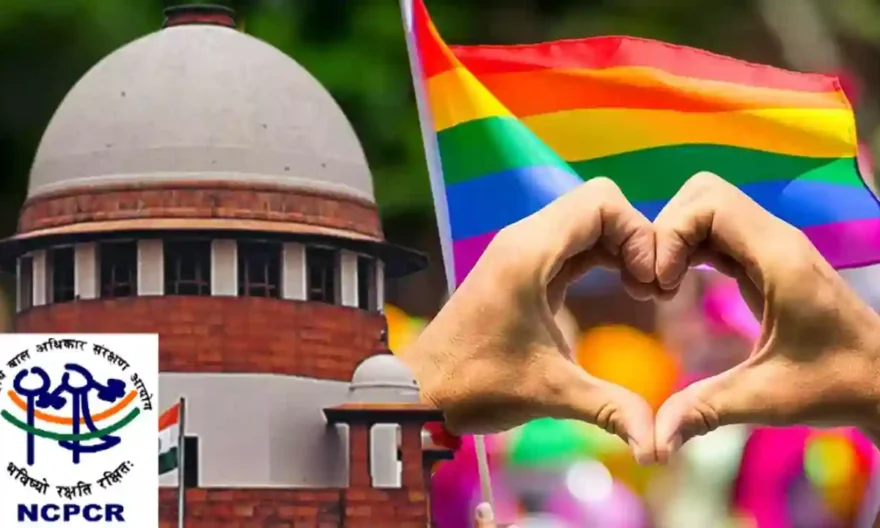
In a batch of arguments seeking recognition of same-sex marriage before the Supreme Court of India, the National Commission for Protection of Child Rights (NCPCR) has opposed conferring adoption rights on same-sex couples.
In an intervention application filed before the Supreme Court, the NCPCR claimed that studies on adoption by same-sex parents reveal that such a kid suffers social and psychological consequences.
“Allowing adoption of same-sex couples puts children in danger,” the NCPCR argued.
Dr. Paul Sullins of the Catholic University of America conducted the study stated in the application. According to the same study, children with same-sex parents were twice as likely as children with opposite sex parents to have emotional and developmental problems.
“It was also discovered that children living with both biological parents who were married had the lowest risk of emotional problems,” it stated.
According to the NCPCR, allowing children to be raised by people who have issues is akin to subjecting them to hardship for the sake of experimenting. It was contended that this was not in the best interests of the children.
Same-sex parents may have limited exposure to typical gender role models, limiting their children’s exposure and affecting their overall personality development.
“Because the right to equality does not imply equating unequals, creating a category is not in violation of Article 14 of the Constitution. A couple of different genders is in one category, whereas a couple of the same gender is in another category for the purpose of having children,” the NCPCR stated.
It further claimed that adoption takes place in a similar socio-cultural setting, which is not conceivable in the current scenario, and so it violated principles of the Juvenile Justice Act as well as rules under other Indian laws and international treaties.
The Hindu Adoption and Maintenance Act employs the terms “spouse” and “wife” while restricting adoption to Hindu males and females. As a result, the application specified that it did not apply to same-sex couples.
“The current legal system does not envision same-sex couples having custody of or adopting children,” it stated.
Finally, it claims that a proper legislative structure involving same-sex couples must be implemented before children can be considered, and that bringing up adoption in the current petitions is premature.
The petition was filed through Advocate on Record Swarupama Chaturvedi.
Tomorrow, a Supreme Court’s Constitutional bench comprised of Chief Justice of India (CJI) DY Chandrachud, Justices Sanjay Kishan Kaul, S Ravindra Bhat, PS Narasimha, and Hima Kohli will hear the same-sex marriage petitions.
The slew of petitions have sought legal recognition of same-sex marriages, saying that the freedom to marry the person of one’s choice should be extended to LGBTQIA+ people as well.
The Central Government has objected to gay couples’ petitions filed before the Supreme Court.
The Central government stated in an affidavit filed before the Supreme Court that living together as partners and having sexual relationships by same sex couples is not comparable to the Indian family unit idea, which incorporates biological man and biological woman with children born out of wedlock.
The Centre has also filed an application seeking the Court to first rule on the maintainability of the petitions.
Similar sentiments have been expressed by the Islamic religious organisation Jamiat-Ulama-I-Hind, which has stated that conceptions such as same-sex marriage originate in western cultures with extreme atheistic worldviews and should not be imposed on India.
However, the Delhi Commission for Protection of Child Rights (DCPCR) has backed the petitioners’ argument, stating that same-sex couples should be granted adoption and succession rights.




